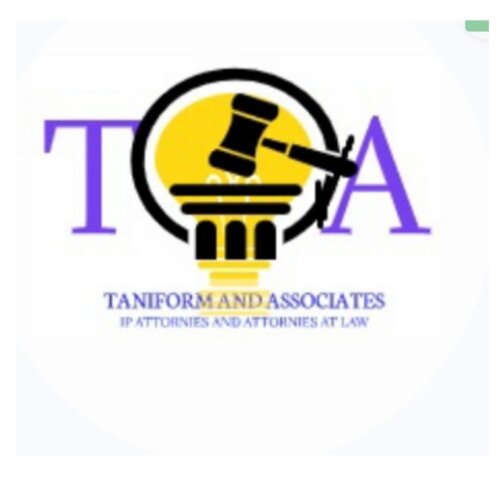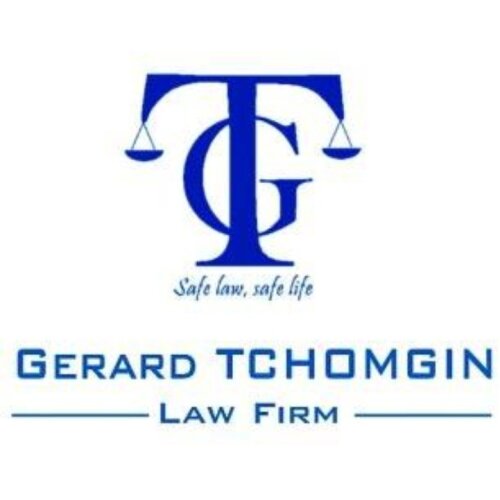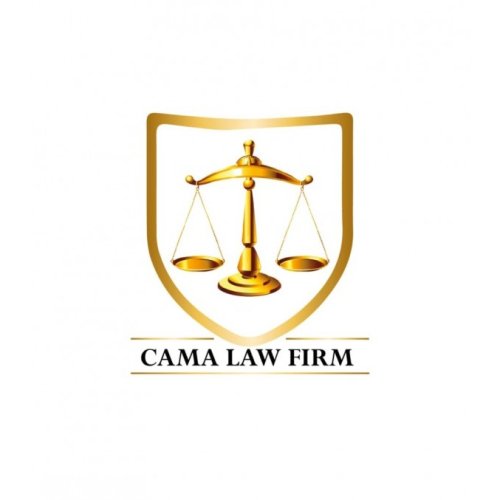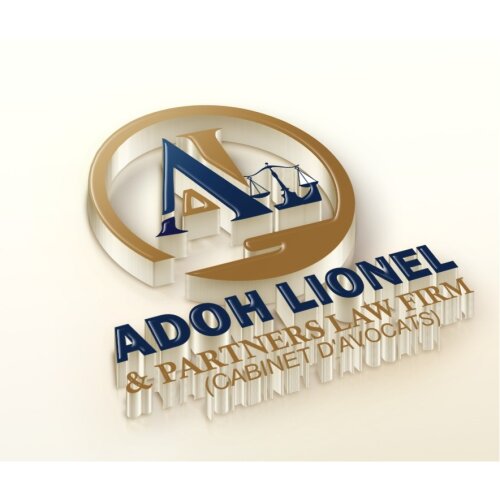Best Business Lawyers in Cameroon
Share your needs with us, get contacted by law firms.
Free. Takes 2 min.
Or refine your search by selecting a city:
List of the best lawyers in Cameroon

Taniform and Associates IP Attorneys and Attorneys at Law
15 minutes Free ConsultationLegal guides written by CHI & Partners Law Firm:
- Ship Registration in Cameroon
Cameroon Business Legal Questions answered by Lawyers
Browse our 1 legal question about Business in Cameroon and read the lawyer answers, or ask your own questions for free.
- Want to know the cost and procedure for a gambling license in the Republic of Cameroon
- Am a Cameroonian resident in the United Arab Emirates and want to make an application for a real money game. What are the costs and procedures Thanks?
-
Lawyer answer by Kima & Partners Firm
Re answer to your question concerning the application for real money game license in Cameroon. First you must have a company with the objectives of the real money game activity inscribed in the Articles of Association. This registration process will...
Read full answer
Cameroon Business Legal Articles
Browse our 1 legal article about Business in Cameroon written by expert lawyers.
- Ship Registration in Cameroon
- Ship registration is an essential and necessary part of the use and operation of ships in Cameroonian and international waters; The CEMAC Merchant Shipping Code as amended on August 22, 2012, is the law governing the registration of vessels in the country and is administered by the Ministry of Transport. ... Read more →
About Business Law in Cameroon
The business law in Cameroon operates within a mixed legal system, which includes English common law, French civil law, and customary law. The country's efforts to promote foreign investment has lead to the improvement of the business environment. Regulations have been put in place to safeguard the rights of businesses, ranging from small-scale enterprises to multinational corporations. The business laws cover diverse aspects such as business formation, intellectual property rights, labor laws, taxation, contracts, and dispute resolution, among others.
Why You May Need a Lawyer
The complexity of the legal landscape in Cameroon can often be challenging to navigate without professional assistance. Lawyers can help decipher these complexities in areas such as setting up a business, drafting contracts, resolving business disputes, handling tax matters, protecting intellectual property rights, and navigating labor laws. Moreover, having legal advice is crucial in ensuring compliance with Cameroon’s regulatory environment and understanding potential legal implications in business decisions.
Local Laws Overview
Commercial law in Cameroon is governed by the Uniform Act on General Commercial Law and encompasses various aspects such as business formation, management, and termination. The country is part of the Organisation for the Harmonisation of African Business Law (OHADA), which provides standardized business laws for its member states. Intellectual property is protected under the OAPI Agreement, which Cameroon is a part of.
The labor code of Cameroon governs the employer-employee relationships. It stipulates rules around working conditions, compensation, dispute resolution, and employee rights. Cameroon's tax laws dictate the different taxes businesses need to adhere to, which includes corporate tax, VAT, and withholding tax.
Frequently Asked Questions
What are the key industries in Cameroon?
Key industries in Cameroon include mining, agriculture, manufacturing, and services industries.
What is the process of setting up a business in Cameroon?
The process involves registering the business with the Registrar of Companies, obtaining necessary permits and licenses, and registering for tax.
What is OHADA?
OHADA is an organization that attempts to harmonize business laws in its African member states.
What languages are used in business law?
English and French are widely used in business law, reflecting Cameroon's mixed legal system.
Are foreign businesses protected by local law?
Yes, foreign businesses enjoy ample protection and promotion according to Cameroonian law.
What is the corporate tax rate in Cameroon?
The standard corporate tax rate in Cameroon is 33%, but it may vary depending on specific circumstances.
What are the labor laws for businesses?
The labor code of Cameroon applies to all businesses and covers areas such as contracts, working conditions, and dispute resolution.
Are there any incentives for business investment?
Yes, Cameroon offers several incentives for investment such as tax breaks, depending on the field and region of investment.
How is intellectual property protected in Cameroon?
Intellectual property is protected under the OAPI Agreement, which aids in protecting patents, trademarks, and copyrights.
Is arbitration recognized in business disputes?
Yes, arbitration is recognized and regularly used in Cameroon for resolving business disputes.
Additional Resources
For further resources, consult the website of the Cameroon Chamber of Commerce, Industry, Mines and Crafts. The Ministry of Small and Medium-sized Enterprises, Social Economy, and Handicrafts also offers valuable resources. Organizations like the OHADA and OAPI can provide more specific guidance about business and intellectual property law.
Next Steps
Firstly, identify the legal needs of your business. Once you've done that, seek out a reputable lawyer who specializes in business law in Cameroon. Be prepared to provide in-depth information on your business, and always keep open lines of communication about future laws or existing law changes that could affect your business.
Lawzana helps you find the best lawyers and law firms in Cameroon through a curated and pre-screened list of qualified legal professionals. Our platform offers rankings and detailed profiles of attorneys and law firms, allowing you to compare based on practice areas, including Business, experience, and client feedback.
Each profile includes a description of the firm's areas of practice, client reviews, team members and partners, year of establishment, spoken languages, office locations, contact information, social media presence, and any published articles or resources. Most firms on our platform speak English and are experienced in both local and international legal matters.
Get a quote from top-rated law firms in Cameroon — quickly, securely, and without unnecessary hassle.
Disclaimer:
The information provided on this page is for general informational purposes only and does not constitute legal advice. While we strive to ensure the accuracy and relevance of the content, legal information may change over time, and interpretations of the law can vary. You should always consult with a qualified legal professional for advice specific to your situation.
We disclaim all liability for actions taken or not taken based on the content of this page. If you believe any information is incorrect or outdated, please contact us, and we will review and update it where appropriate.
Browse business law firms by service in Cameroon
Cameroon Attorneys in related practice areas.
Browse business law firms by city in Cameroon
Refine your search by selecting a city.
















